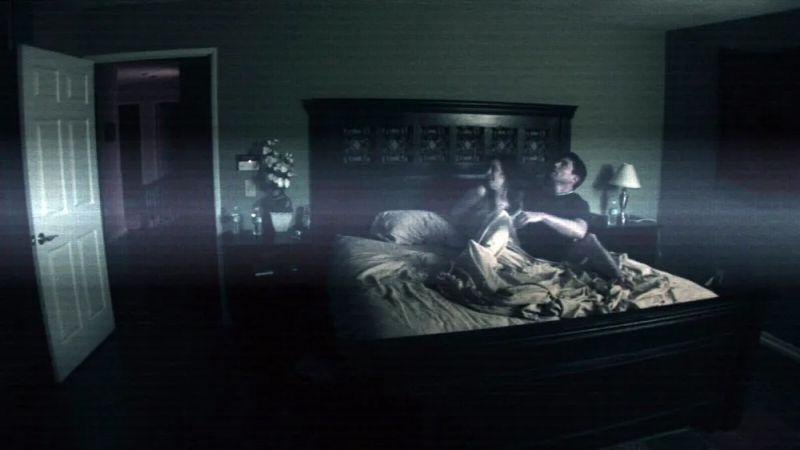 Filmofil.ba sa ponosom predstavlja kritike mladih autora nastale u okviru ovogodišnjeg programa Talents Sarajevo na 22. Sarajevo Film Festivalu
Filmofil.ba sa ponosom predstavlja kritike mladih autora nastale u okviru ovogodišnjeg programa Talents Sarajevo na 22. Sarajevo Film Festivalu
Piše: Petra Meterc Prevod sa engleskog: Bojana Pušara
Kada je prošlog mjeseca Melania Trump plagirala govor koji je već održala Michelle Obama, gostujuća profesorica na Fakultetu političkih nauka pri Univerzitetu u Čikagu, dr. Monika Nalepa napisala je za online izdanje Washington Posta kako tvrdi da je varanje endemičnost u istočnoevropskoj kulturi. Taj članak je pretjerano uopšten i obiluje pretpostavkama. Film Graduation (Mungiu, 2016) koji prikazuje aspekt plagiranja iz perspektive Rumuna, pa samim tim i stanovnika istočne Evrope, djelimično se preklapa sa stavovima dr. Nalepe. Christian Mungiu, jedan od vodećih filmskih radnika novog talasa u Rumuniji priča nam priču o ocu (Adrian Titieni) koji bi uradio sve što je potrebno za uspjeh svoje kćerke (Maria-Victoria Dragus). Otac shvata da ona neće biti u stanju da sama položi završne ispite u srednjoj školi onoliko uspješno koliko se očekuje zbog incidenta koji je pretpjela dan ranije, te odlučuje da sve uzme u svoje ruke. Koristi svoje društvene kontakte za usluge koje su u potrebne i Mungiueva Rumunija se čini kao pravo mjesto za to. Glavni lik je zarobljen u lančanoj reakciji donošenja odluka koje se tiču morala i ne vidi joj se kraj. Ipak, nije pojedinac glavni krivac. Kompletan sistem funkcioniše kao džungla, sistem usluga za uslugu funkcioniše na svim nivoima, radilo se o pravu, zdravstvu ili školstvu i na taj način se popunjavaju praznine uzorkovane niskim primanjima. Nemoj mi reći da živiš od svoje plate, pitaju oca u jednom trenutku, a tragikomičnost je u tome što ga pita ljekar za koga se zna da ne uzima mito.
Film predstavlja i javni i privatni sektor i obje sfere prikazane su kao jednako disfunkcionalne. Otac je izgubljen u postsovjetskom tranzicijskom društvu i čini se ulovljenim u klopku stalnih neuspjeha. Nerazjašnjeno bacanje kamena na njega tumači kao loš znak i to samo pogoršava već loše raspoloženje. Njegova supruga (Lia Bugnar) pati od depresije, ljubavnicu (Malina Manovici) je potpuno razočarao (ironično, njegov nadimak je Romeo), a kćerka je uznemirena očevom vlastitom frustracijom i potrebom da svoje dijete pretvori u projekat. On emotivno nije povezan ni sa jednom od njih i opsjednut je isključivo idejom da njegova kćerka mora da se školuje na prestižnom britanskom univerzitetu, čime bi potvrdio svoje divljenje prema glorifikovanom Zapadu. Lekcija stiže na kraju filma više u kontekstu generacijskog jaza nego same korupcije i odličan je materijal za dalje razmišljanje.
Za nekoga kome je blizak Mungiuev kinematografski jezik kao i ostali filmovi koji obrađuju temu korupcije u Rumuniji, npr. Corneliu Porumboiuev Police, Adjective (2009), Graduation ne ispunjava očekivanja. Iako Mungiu pravi otklon od standardnog, dogmatski pristup estetici i surovi realizam nisu postigli maksimalan efekat. U filmu je primijetan nedostatak akcije i održavanja fokusa, tako da se tok radnje ponekad gubi. Razvoj radnje je ubrzan paralelnim pričama koje gledalac prati, ali neke od njih su preopširne, prvenstveno misleći na uvođenje likova sina njegove ljubavnice i dečka njegove kćerke. Takođe, sveprisutna korupcija je prikazana u tolikom broju primjera da je efekat kontraproduktivan za samu realističnost dešavanja. Što se tiče same teme, paralela se može povući sa bugarskim filmom The Lesson (Grozeva i Valchanov, 2014) gdje je prikazana dardenovska kritika disfunkcionalnog društva u žanru najsličnijem trileru. Glavni motiv tog filma je metaforička pljačka škole. Kao koproducenti filma Graduation navedeni su braća Dardenne što možda i nije iznenađenje. Nedostaje mu barem majušni korak kojim bi izašao iz sigurne zone filmske radnje.
Fillmofil.ba proudly represents the works of young critics done in program Talents Sarajevo of 22nd Sarajevo Film Festival
Graduation: Eastern-European Cheating Games
Written by: Petra Meterc Translation: Bojana Pušara
When, last month, Melania Trump delivered a speech plagiarised from Michelle Obama, Associate Professor of Political Science at the University of Chicago dr Monika Nalepa wrote a blog for the Washington Post Online Edition, where she claims the cheating to be endemic of Eastern-European culture. While the article is quite generalizing and presumptuous, the film Graduation (Mungiu, 2016), a narrative on cheating seen from a Romanian and therefore Eastern-European perspective, could partially comply with dr Nalepa’s claims. Christian Mungiu, one of the Romanian new-wave front-runners is telling us a story of a father (Adrian Titieni) who would do anything for the success of his daughter (Maria-Victoria Dragus). The father figures his daughter won't be able to pass her high-school finals as successfully as planned due to the assault she felt victim to the previous day, so he decides to take things into his own hands. He uses his social network for the favour he needs, and Mungiu's Romania seems the right country to do so. Even though the central character seems to be caught in a chain-reaction of moral decision-making to which there seems to be no ending, it is the highly corruptive and rigid bureaucratic system that Mungiu dissects, not the character. This system functions as a clientelistic jungle; the culture of favours works on all levels, be it law, the health service or the educational system, filling the gaps caused by the state's shortcomings. “Don't tell me you live off your pay check,” the father is told at some point, yet funnily so, he is renowned as one of the doctors who actually don't accept bribery.
 Yet it seems this doesn't help him much in life. The film jumps from the public to the private sphere and both are presented as similarly dysfunctional. Disillusioned by the post-soviet transitional society, he seems to be entrapped in constant failure. The mysterious stone throwing that he perceives as some kind of bad omens only intensifies this mood. He fails most in his relationships. Not only is his wife (Lia Bugnar) depressed, his lover (Malina Manovici) is disappointed by him (when she is introduced we also find out that he is ironically named Romeo), and his daughter is annoyed by her father's personal frustration transforming her into his child-project.
Yet it seems this doesn't help him much in life. The film jumps from the public to the private sphere and both are presented as similarly dysfunctional. Disillusioned by the post-soviet transitional society, he seems to be entrapped in constant failure. The mysterious stone throwing that he perceives as some kind of bad omens only intensifies this mood. He fails most in his relationships. Not only is his wife (Lia Bugnar) depressed, his lover (Malina Manovici) is disappointed by him (when she is introduced we also find out that he is ironically named Romeo), and his daughter is annoyed by her father's personal frustration transforming her into his child-project.
He is completely detached from all of these women and yet still only obsesses about whether or not his daughter is going to a prestigious British university and thus succeeding in his glorified concept of the West. The lesson comes in a non-climatic way at the end and actually has more to do with the generational differences than with corruption, which is great food for thought.
Yet for someone familiar with Mungiu's cinematic language as well as with other films tackling the topic of corruption in Romania, such as Corneliu Porumboiu's Police, Adjective (2009), Graduation does not live up to expectations. It seems as though Mungiu made a step aside from the typical, almost dogmatic aesthetics and the rough realism is toned down.
The film presents the viewer with an overwhelming abundance of action and issues addressed, so the focus of the main storyline sometimes gets lost. The pace of the film is often sped-up due to several plot lines of which some feel redundant, such as the story of the lover's son and the scenes with the daughter's boyfriend. Also, the omnipresent corruption being demonstrated by such an amount of examples can work against the film's realism. Topic-wise, a parallel could be drawn with the Bulgarian The Lesson (Grozeva and Valchanov, 2014) in which the Dardennian thriller-like critique of the dysfunctional society is built around the metaphor of a school theft. Graduation, maybe not surprisingly co-produced by the Dardenne brothers, lacks at least a tiny step out of the plot's comfort-zone.
























